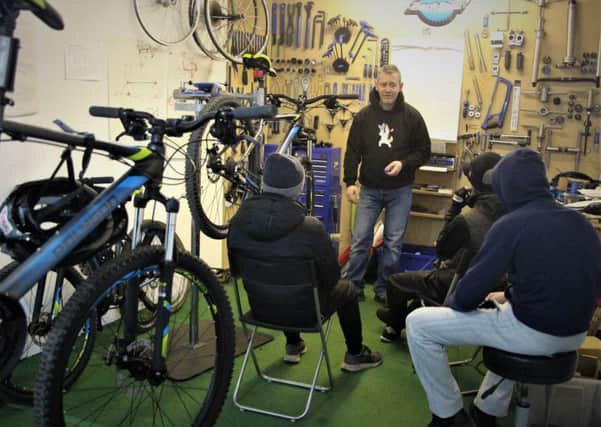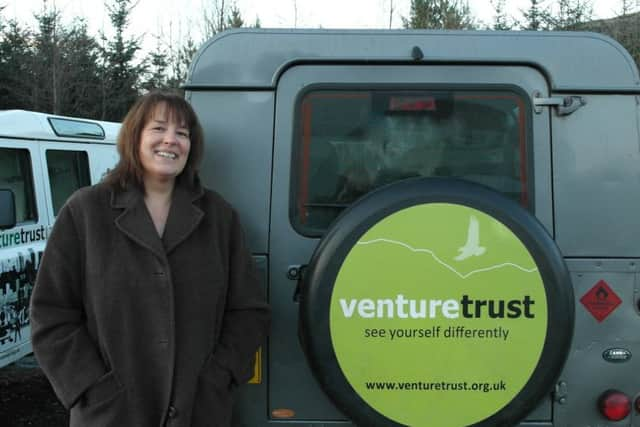Amelia Morgan: We must recognise that people can change '“ not just lock them up in jail


Some would strongly advocate locking people up as the tough option. But the evidence shows that community sentences are more effective at reducing reoffending than short prison sentences. It’s not an easy debate. So how do we invest in what works and helps people move beyond their past?
Taking a compassionate approach comes first. It means believing people can change and can come back from their mistakes. Someone’s past – where they grew up, their family background or previous negative and damaging experiences – does not have to define them. Diverting more young people away from the justice system does create safer communities. It does break the cycle of offending and reduce the social harm and financial costs for individuals, families and communities.
Advertisement
Hide AdAdvertisement
Hide AdOften it is poverty, inequality and adverse childhood experiences and the trauma resulting from domestic abuse, addiction to drugs and alcohol that underpins offending behaviour.


Let’s be clear, growing up in poverty or in care in childhood doesn’t equate to a troubled future but nor is it what we would want for children and young people in Scotland.
Our ambition must be to prevent harm and to reduce the risk of offending, enabling people to be healthier, happier and transform their prospects.
Organisations and charities, such as Venture Trust, run specific development programmes aimed at supporting people to take charge of their own life, acquiring the necessary resilience and skills to take responsibility, be ready to sustain employment and nurture positive relationships built on trust and a positive sense of self.
Several of Venture Trust’s programmes are aimed at young people experiencing challenging life circumstances. We work collaboratively with partners to give individuals new skills, boost their confidence, motivation and aspirations, and look to move towards education, employment, volunteering and training. Our Inspiring Young Futures programme has enabled hundreds of young people to get their lives back on track and away from the potential involvement in the criminal justice system.
The Scottish Government’s Justice Vision and Priorities and the subsequent proposal to end jail terms of less than 12 months will set challenges to address reoffending in communities. There are currently about 20,000 individuals subject to social work orders each year in Scotland (95 per cent subject to community payback orders). More than three-quarters (76 per cent) of total social work orders commencing in 2015-16 included an element of unpaid work or other activity, and in the region of 40 per cent are not completed as planned.
These challenges require us to be bolder, to be confident that we can deliver collaborative and effective community-based interventions, which all the evidence suggests are a better option for the majority of individuals in the criminal justice system.
At Venture Trust, we would argue that we need to place far greater emphasis on rehabilitation in addition to unpaid work as part of any community sentence to facilitate behaviour change and assist more individuals to reduce their risk of reoffending and complete their sentence. Independent evaluations show our programme specifically for women caught up in the criminal justice system has had positive impacts on individuals. They have gained new skills, improved their confidence and have started working or studying. They are more stable and less likely to reoffend. These positive changes are then transferred to their families and communities.
Advertisement
Hide AdAdvertisement
Hide AdFormer Next Steps participant Laura (not her real name) said: “Before Venture Trust I was on a one-way ticket to prison. I’m now a fully qualified plumber. My life’s changed for the better, I’m healthier, happier, thriving. I’ve got a career now, I can see a future.”
Laura is not alone, with many other women having gone on to find work or enrol into college or training courses. For others, avoiding prison has meant keeping their families together. To achieve greater gains, we need to be bold – to tackle systemic issues in our society with a long term goal of fewer of our children and young people growing up in poverty, or experiencing disadvantage and inequality.
For people already in the criminal justice system there has to be a recognition that it takes time for rehabilitation. They need to stabilise their life circumstances and rebuild relationships, and it starts with a prerequisite of an individual wanting to change.
A short term approach to community justice offers little reassurance that interventions will be available to those in need. Investing for the long term in services which work is fundamental to build confidence for victims of crime, sentencers and the public, and will result in making communities safer.
For more information visit our website www.venturetrust.org.uk
Amelia Morgan, Venture Trust chief executive.